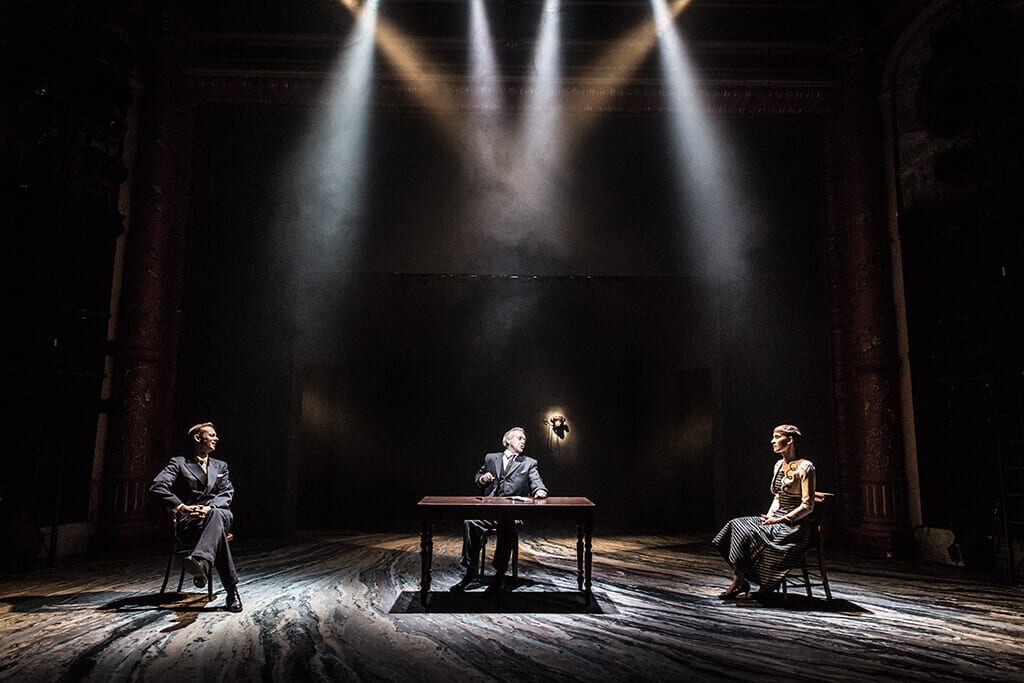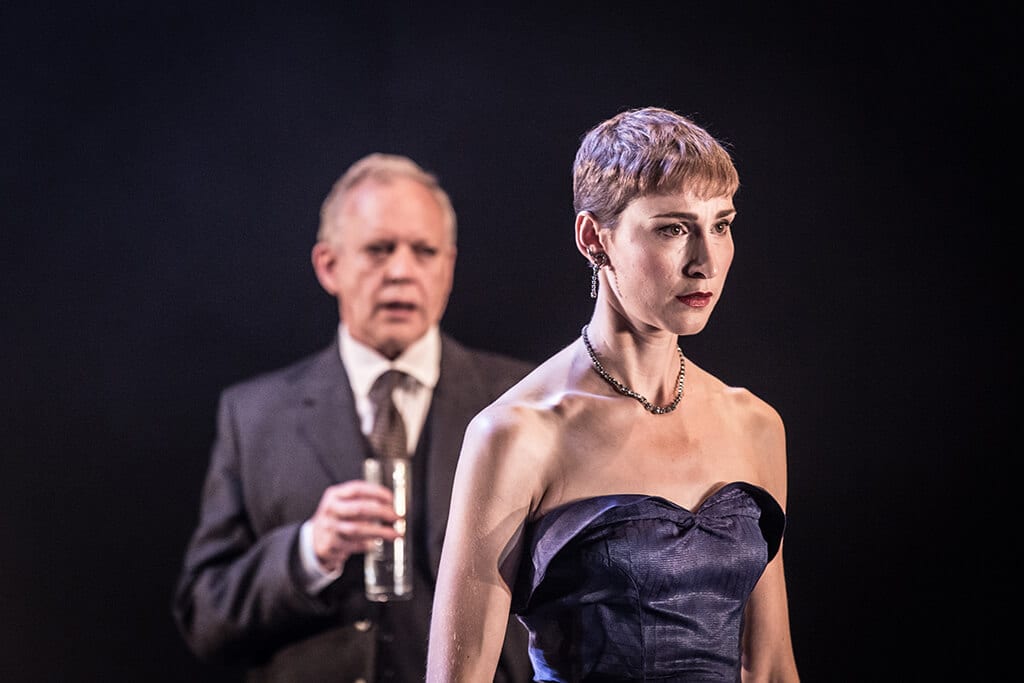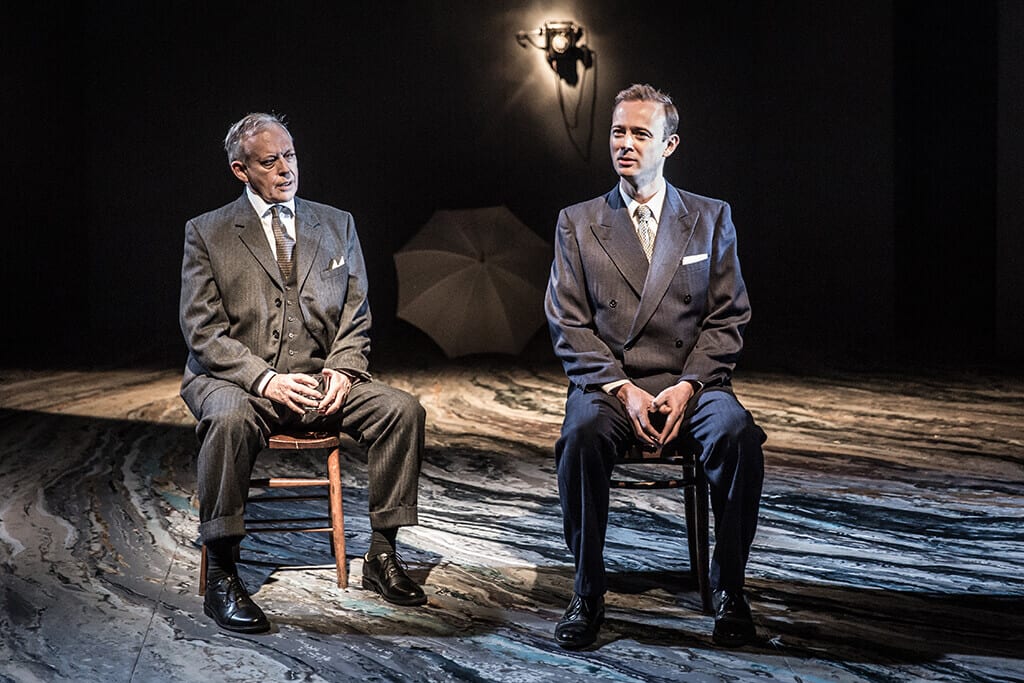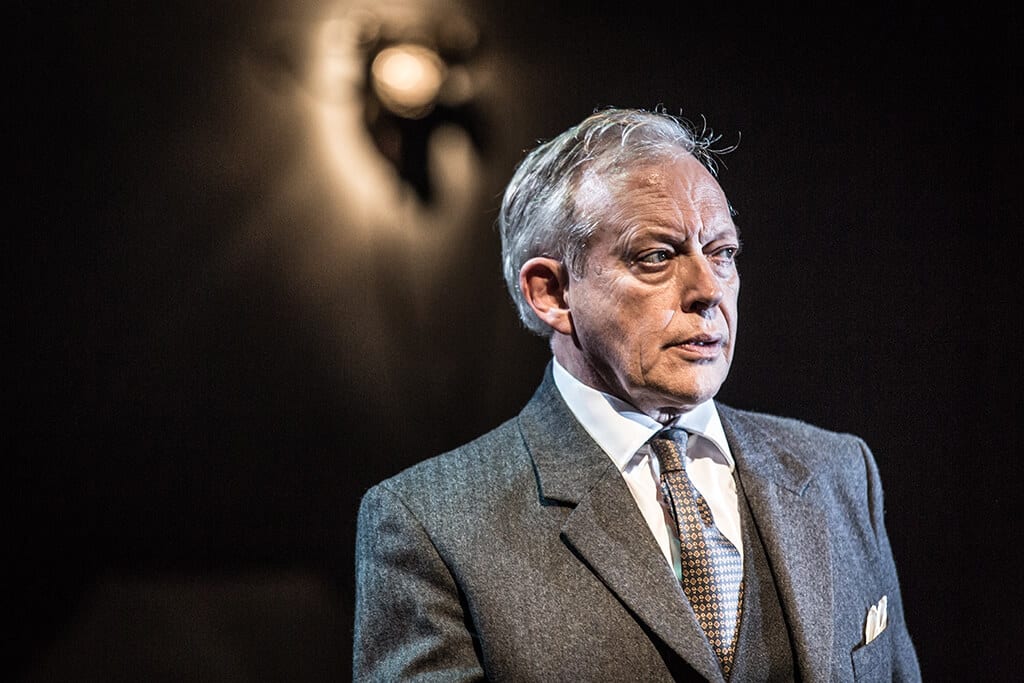Eliot said that a play is less personal than a poem. And while ‘The Cocktail Party’ seems to provide a detached observation on the lives of the upper-middle class, there is something deeply individual about it. Indeed, the stronger moments in Abbey Wright’s restrained production are when the emphasis is placed on the decaying relationships and personal struggles of the characters who attend Edward Chamberlayne’s cocktail party.
Eliot’s guilt over the institutionalisation of his wife into an asylum a decade before writing the play seeps into the text and washes the play in a sombre stillness which Hilton McRae’s performance seems to embody. He is captivating as the Unidentified Guest who slowly becomes the blunt marriage counsellor and ominous spiritual psychologist throughout the course of the play. His ambiguous silences and sparkling eyes seem to see deep into the souls of his fellow characters and provide a level of engagement that is lacking in scenes where he is not present.
Marcia Warren is another highlight of the production. She holds the first half together with her command of Eliot’s witty script. Her swaying martini glass is perfectly at odds with her sharp tongue and hidden insights into the lives of the guests around her.
While there are some strong performances, the production fails to hold itself together. The lengthy duologues towards the end of the two and a half hour run time are hard to follow and the characters are often difficult to engage with. The design seems lacking, though this may be a fault of the venue itself, for lights encroach onto the stage in a rather artless way. The box lights focusing our attention on the telephone on the back wall or the collection of cocktail glasses strewn on the floor seems slightly incongruous with the subtlety of Eliot’s script.
In 1950, Alec Guiness played the role of the Unidentified Guest/Henry Reilly. He described the role as ‘the most fatiguing’ he had ever performed. ‘Not from a physical point of view’, he said, but because ‘the part demands more concentration than anything I’ve ever attempted. I can’t let up mentally for a moment.’ This lies at the core of Wright’s production. It fails to consistently engage one mentally, something that is necessary for this densely packed play.





